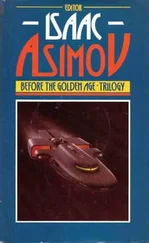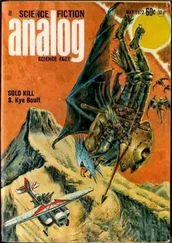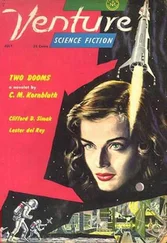Clifford Simak - Ring Around the Sun
Здесь есть возможность читать онлайн «Clifford Simak - Ring Around the Sun» весь текст электронной книги совершенно бесплатно (целиком полную версию без сокращений). В некоторых случаях можно слушать аудио, скачать через торрент в формате fb2 и присутствует краткое содержание. Жанр: Фантастика и фэнтези, на английском языке. Описание произведения, (предисловие) а так же отзывы посетителей доступны на портале библиотеки ЛибКат.
- Название:Ring Around the Sun
- Автор:
- Жанр:
- Год:неизвестен
- ISBN:нет данных
- Рейтинг книги:5 / 5. Голосов: 1
-
Избранное:Добавить в избранное
- Отзывы:
-
Ваша оценка:
- 100
- 1
- 2
- 3
- 4
- 5
Ring Around the Sun: краткое содержание, описание и аннотация
Предлагаем к чтению аннотацию, описание, краткое содержание или предисловие (зависит от того, что написал сам автор книги «Ring Around the Sun»). Если вы не нашли необходимую информацию о книге — напишите в комментариях, мы постараемся отыскать её.
Ring Around the Sun — читать онлайн бесплатно полную книгу (весь текст) целиком
Ниже представлен текст книги, разбитый по страницам. Система сохранения места последней прочитанной страницы, позволяет с удобством читать онлайн бесплатно книгу «Ring Around the Sun», без необходимости каждый раз заново искать на чём Вы остановились. Поставьте закладку, и сможете в любой момент перейти на страницу, на которой закончили чтение.
Интервал:
Закладка:
They said: "If you ask me, it's them Commies that stirred up this mutant business. You mark my word, they're at the bottom of it."
They said: "It just don't seem possible. Here we sit tonight a million miles from war with everything calm and peaceful. And tomorrow…"
_And tomorrow and tomorrow and tomorrow._
They said: "If it was up to me, I'd get in touch with them mutants. They got stuff up their sleeve that would blow these Commies plumb to hell."
They said: "Like I said thirty years ago, we never should have demobilized at the end of World War II. We should have hit them then. We could've knocked them off in a month or two."
They said: "The hell of it is that you never know. No one ever tells you anything and when they do, it's wrong."
They said: "I wouldn't horse around with them a single God damn minute. I'd load me up some bombs and I'd let them have it."
He listened to them talk and there was no talk of compromise nor of understanding. There was no hope in all the talk that war could be averted. "If not this time," they said, "it'll come in five years, or ten, so let's get it over with. You got to hit them first. In a war like this there ain't no second chance. It's either them or us…"
And it was then that he fully understood that even here, in the heartland of the nation, in the farms and little villages, in the roadside eating places there was a boiling hate. That, he told himself, was the measure of the culture that had been built upon the earth — a culture founded on a hatred and a terrible pride and a suspicion of everyone who did not talk the same language or eat the same food or dress the same as you did.
It was a lop-sided mechanical culture of clanking machines, a technological world that could provide creature comfort, but not human justice nor security. It was a culture that had worked in metals, that had delved into the atom, that had mastered chemicals and had built a complicated and dangerous gadgetry. It had concentrated upon the technological and had ignored the sociological so that a man might punch a button and destroy a distant city without knowing, or even caring, about the lives and habits, the thoughts and hopes and beliefs of the people that he killed.
Underneath the sleek surface one could hear the warning rumble of machines; and the gears and sprockets, the driving chain, the generator, without the leavening of human understanding, were the guideposts to disaster.
He drove and ate and drove again. He ate and slept and drove. He watched the cornfields and the reddening apples in the orchard and heard the song of mowers and smelled the scent of clover and he looked into the sky and felt the terrible fear that hung high in the sky and he knew that Flanders had been right, that to survive Man must mutate and that the survival mutation must win before the storm of hate could break.
But it was not only news of approaching war which filled the columns of the daily press and the frenzied quarter-hours of the news commentators.
There was still the mutant menace and the hatred of the mutants and the continuing exhortations to the people to keep a watch for mutants. There were riots and lynchings and gadget shops burned.
And something else:
A creeping whisper that spread across the land, that was talked over at the drugstore corners and at the dusty cross-roads and in the shadowed night spots of the bigger cities — the whisper that there was another world, a brand new world where one could start his life again, where one would escape from the thousands of years of accumulated mistakes of the present world.
The press at first was wary of the story, then printed cautious stories with very restrained headlines and the news commentators seemed at first to be just as wary, but finally took the plunge. In a very few days the news of the other world and of the strange, starry-eyed people who had talked to someone else (always someone else) who claimed they had come from there ranked with the news of approaching war and with hatred of the mutants.
You could feel the world on edge, as tense as the sudden, strident ringing of a telephone in the dead of night.
CHAPTER FORTY-FOUR
CLIFFWOOD after dark had the smell and feel of home and he drove along its streets and felt the lump of loss come into his throat, for it had been here that he had thought to settle down and spend his years in writing, in setting down on paper the thoughts that welled inside of him.
His house was here and the furniture and the manuscript and the crudely carpentered shelf that held his freight of books, but it was his home no longer, and now, he knew, could never be again. And that wasn't all, he thought. The Earth, the original human earth — the earth with the capital E — was his home no longer and never again could be.
He'd go and see Eb first and after he had seen Eb, he'd go to his own house, and get the manuscript. He could give the manuscript to Ann, he thought; she would keep it for him.
On second thought, he'd have to find some other place, for he didn't want to see Ann — although that was not precisely the truth. He did want to see her, but knew he shouldn't, for now there lay between them the almost-certain knowledge that he and she were part of a single life.
He pulled the car to a stop in front of Eb's house and sat there for a moment looking at it, wondering at the neatness of the house and yard, for Eb lived alone without wife or child, and it was not usual that a man alone would keep a place so tidy.
He'd spend just a minute with Eb, would tell him what had happened, what was going on, would make arrangements to keep in touch with him, would learn from him whatever news might be worth knowing.
He closed the car door and went across the walk, fumbling at the latch of the gate that opened to the yard. Moonlight came down through the trees and splotched the walk with light and he followed it to the porch, and now, for the first time, he noticed that there were no lights burning in the house.
He rapped on the door, knowing from poker sessions and other infrequent visits that Eb had no doorbell.
There was no answer. He waited and finally rapped again and then turned from the door and went down the walk. Maybe Eb was still down at the garage, putting in some overtime on an urgent repair job, or he might be down at the tavern, having a quick one with the boys.
He'd sit out in the car and wait for Eb. It probably wouldn't be safe to go down into the village business section where he'd be recognized.
A voice asked: "You looking for Eb?"
Vickers spun around toward the voice. It was the next door neighbor, he saw, standing at the fence.
"Yes," said Vickers. "I was looking for him."
He was trying to remember who lived next to Eb, who this person across the fence might be. Someone that he knew, someone who might recognize him?
"I'm an old friend of his," said Vickers. "Just passing through. Thought I'd stop and say hello."
The man had stepped through a break in the fence and was coming across the lawn.
The man asked: "How well did you know Eb?"
"Not too well," said Vickers. "Haven't seen him in ten or fifteen years. Used to be kids together."
"Eb is dead," the neighbor said.
"Dead!"
The neighbor spat. "He was one of them damned mutants."
"No," protested Vickers. "No, he couldn't be!"
"He was. We had another one, but he got away. We always had a suspicion Eb might have tipped him off."
The bitterness and hatred of the neighbor's words filled Vickers with a feeling of sheer terror.
The mob had killed Eb and they would kill _him_ if they knew he had returned to town. And in just a little while they'd know, for any minute now the neighbor would recognize him — now he knew who the neighbor was, the beefy individual who ran the meat market in the town's one chain store. His name was — but it didn't really matter.
Читать дальшеИнтервал:
Закладка:
Похожие книги на «Ring Around the Sun»
Представляем Вашему вниманию похожие книги на «Ring Around the Sun» списком для выбора. Мы отобрали схожую по названию и смыслу литературу в надежде предоставить читателям больше вариантов отыскать новые, интересные, ещё непрочитанные произведения.
Обсуждение, отзывы о книге «Ring Around the Sun» и просто собственные мнения читателей. Оставьте ваши комментарии, напишите, что Вы думаете о произведении, его смысле или главных героях. Укажите что конкретно понравилось, а что нет, и почему Вы так считаете.









